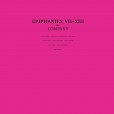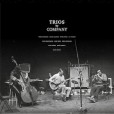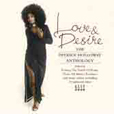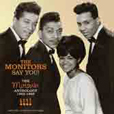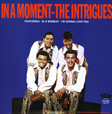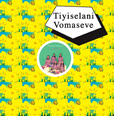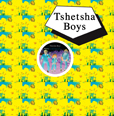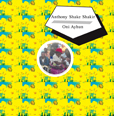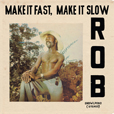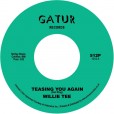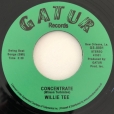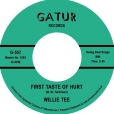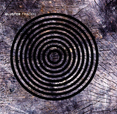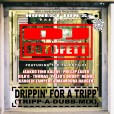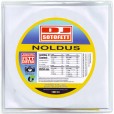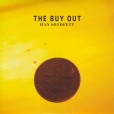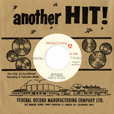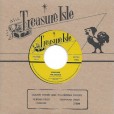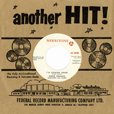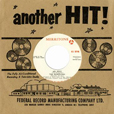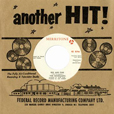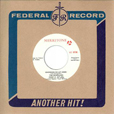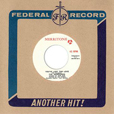Your basket is empty

More buried treasure from Company Week 1982: seven previously unissued Epiphanies by lineups involving Derek Bailey, Ursula Oppens, Julie Tippetts, Keith Tippett, Philipp Wachsmann, Fred Frith, George Lewis, Anne LeBaron, Motoharu Yoshizawa and Akio Suzuki.
Fred Frith is a stellar improviser — 1974’s Guitar Solos is still a seminal album of free improv — and he has three opportunities here to showcase his considerable talents. Eleventh is a tour de force of extended technique, with George Lewis working slowly but surely through a variety of trombone mouthpieces, while Frith’s guitar, strummed, bowed or prepared, could be a theremin, a koto, a mouse trapped inside a grandfather clock or a lion cub inside a shoebox. Bookending the album, on Seventh he swaps Webernian shards with Lewis and harpist Anne LeBaron and on Thirteenth, with pianist Keith Tippett, he condenses a whole lifetime of musical exploration into a mere twelve minutes. When it’s over both musicians are so amazed they burst out laughing.
Elsewhere, on Eighth, Wachsmann reveals his understated mastery of both his violin and the electronics he’s devised to extend its range, and pianist Ursula Oppens proves she’s as adept as conjuring forth magic from inside her instrument as she is at the keyboard. Major and minor triads too!
Ninth is spikier, with Lewis quacking, spitting and wheezing like a flock of geese let loose in a fairground, while Derek Bailey and Motoharu Yoshisawa patiently explore the outer limits of acoustic guitar and double bass. Bailey and Lewis team up again on Twelfth to take on Oppens — and everybody wins. Voice is more to the fore on Tenth, with Julie Tippetts’ coloratura and flute and Akio Suzuki’s analapos and spring gong flying high, while LeBaron, Wachsmann and Yoshizawa weave intricate webs of pizzicati, spiccati and glissandi beneath.
A typically eclectic collection of guests joined Derek Bailey for Company Week in 1983: saxophonists Evan Parker and Peter Brötzmann; cellist Ernst Reijseger, mainstay of Dutch new jazz (ICP Orchestra, Clusone Trio); American wind virtuoso J.D.Parran, veteran of the Black Artists’ Group and Anthony Davis and Anthony Braxton ensembles.
The French bassist Joëlle Léandre is equally at home playing free or performing works by Cage and Scelsi, while Vinko Globokar is an acclaimed composer as well as a trombonist of monstrous virtuosity.
British electronics pioneer Hugh Davies served time alongside Globokar with Karlheinz Stockhausen. Percussionist Jamie Muir was with Davies on the very first (Music Improvisation) Company outing in 1970, before a brief stint with King Crimson.
Is there an ideal number of musicians for free improvisation? Bailey once described playing solo as a “second-rate activity” – though he did it spectacularly well – while at the other end of the spectrum, large improvising ensembles can descend into an unwieldy racket.
Three may be a crowd for some, but for Pythagoras it was the perfect number, and trios work surprisingly well in improvised music. Sometimes one instrument takes centre stage, like Parker’s circular-breathing soprano at the beginning of Five, but knowing when to lie low, as he does in the brief austere Three, is just as crucial to the success of the whole. Muir makes sure he doesn’t get in the way of Globokar and Parran’s leisurely exchanges on Four, but the trombonist is all over the place on One, with Léandre racing up and down her bass and Davies all spikes, squeaks and squiggles.
With a touch of Bailey’s dry humour, two of these seven recordings aren’t trios at all: Trio Minus One is his duo with Reijseger, running the gamut from crazed polyrhythmic strumming (imagine Reinhardt and Grappelli playing Schoenberg and Nancarrow simultaneously) to what must be the fastest cello pizzicati ever recorded. And on the closing ecstatic nonet, Brötzmann and trumpeter John Corbett prove that more cooks don’t necessarily spoil the broth but sure as hell can spice it up.
Capitol and Motown sides.
Early seventies Philly soul, with Van McCoy, Bobby Martin and Thom Bell at the desk. The title song was their big hit. Nice version of The Temptations’ I Wish It Would Rain.
Two EPs of storming, squinty Shangaan Electro to herald the European tour of Tiyiselani, the Tshetshas and producer Dog, in the summer of 2011.
Fiercely brilliant, slashing, whooping dance music from Oni — all-original, no samples — and a stonking Detroit thumper from the master.
A bobbing, minimal groover from the Berlin corner, dug-in and funked-up over ten minutes; and icily original, top-dog work from Pev, tethered between a kind of arrested Highlife and a Detroit breakout.
Epic, protean brilliance from the Sotofett corner, bumping nylon New Age and ill Chill Out up against reggaeton and jungle exotica, spilling batucada-style percussion workouts out of clean-heeled house.
Each side spins the wheel and introduces a new collaborator or two — Phillip Lauer from Tuff City Kids is here; Gilb’r from Versatile (on a new version of Pulehouse)...
The knockout punch is there on side three: Nondo — which means ‘Heaven’, ‘Eternity’ — starts out as an electro-lullaby from Côte d’Ivoire, sotto voce and abuzz, before lifting off as a zinging, anthemic, future-house-classic.
A real tour de force all round, gusting in from Moss.
Three murderous steppers dubs on a propulsive, rat-tat-tat rhythm, combining mystical spaciousness with detail and ferocity. Angry-lion bass and smears of brass, fusillades and explosions, scares and shocks, oriental pentatonics, clattering percussion and synthy transcendence… the business. The second mix is nastiest; the third is the wildest and most discombobulated (and our favourite).
Bim bim bim.
Warmly organic, engaging recordings, steeped in the verve and lore of seventies jazz, but characteristically up-for-it and irreverent, not remotely twee. One solo, duos and trios, cosmically lathered in synths, with virtuosic playing by Osaruxo, LNS, Jaakko Eino Kalevi, Fit Siegel and co.
Intended as a kind of promo for a tour of Japan, presented in a simple card sleeve.
Warmly recommended. Have a listen.
A deadly rocksteady version of the ska tune they’d already cut for Duke Reid.
Dapper 1967 rocksteady, previously unreleased. Eddie also recorded as a duo with Alton Ellis — Alton And Eddy.
Winston Matthews, Lloyd McDonald and George Haye — Wailing Souls to be. From 1966, this is classic vocal rocksteady, one of the certified gems in the Merritone catalogue. Backed with unreleased ska.
The fledgling Wailing Souls, rocking steady but broken-hearted in 1966; backed with the perfect ska antidote, a previously-unreleased Hopeton Lewis pick-me-up.
